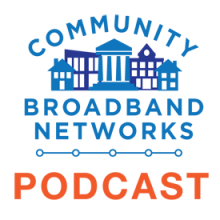2026 Predictions with Blair Levin- Episode 671 of the Community Broadband Bits Podcast

In the first episode of the new year, Chris is joined once again by Blair Levin to unpack what 2025 delivered and what 2026 may hold for broadband, media, and technology policy.
The two revisit last year’s predictions on tariffs, deportations, BEAD implementation delays, and federal broadband investment, assessing where expectations aligned with reality — and where they didn’t.
The conversation also explores deeper structural issues facing the broadband ecosystem: the growing affordability crisis after the end of the Affordable Connectivity Program, the long-term implications for universal service, and the emerging tension between fiber, fixed wireless, and satellite competition.
Looking beyond broadband, the episode tackles the rising backlash against Big Tech and AI, the expansion of online gambling, consolidation in media ownership, and what Blair calls the shift from free markets to a “market for political affection.”
The discussion closes with reflections on what it will take to rebuild trust, competition, and accountability in an era where policy, power, and technology are more intertwined than ever.
This show is 51 minutes long and can be played on this page or via Apple Podcasts or the tool of your choice using this feed.
Transcript below.
We want your feedback and suggestions for the show-please e-mail us or leave a comment below.
Listen to other episodes or view all episodes in our index. See other podcasts from the Institute for Local Self-Reliance.
Thanks to Arne Huseby for the music. The song is Warm Duck Shuffle and is licensed under a Creative Commons Attribution (3.0) license


